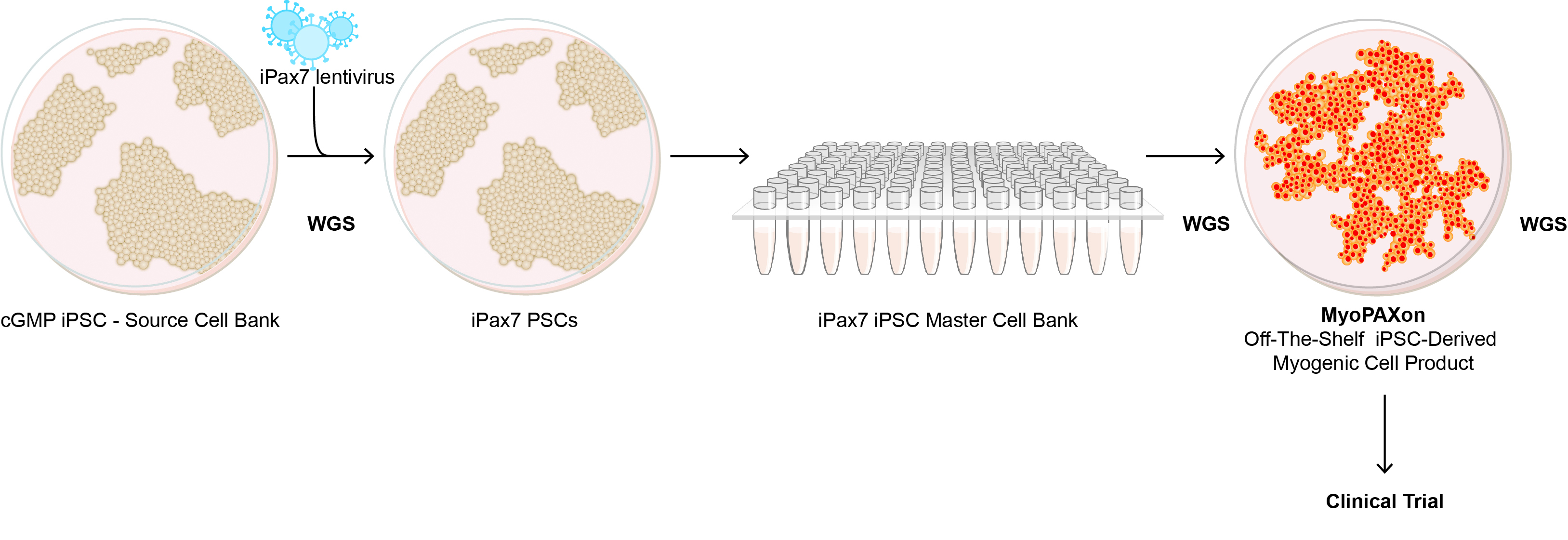There has been tremendous excitement for the therapeutic potential of reprogrammed induced pluripotent stem (iPS) cells in treating genetic diseases, such as Duchenne Muscular Dystrophy (DMD). Professor Rita Perlingeiro (Medicine; MSI PI) and Professor Michael Kyba (Pediatrics; MSI PI) are leading a project that will develop stem cell-based therapy using human skeletal myogenic progenitors derived from pluripotent stem cells. Their hypothesis is that these stem cells will replenish diseased muscle with normal functional muscle fibers as well as muscle stem cells. It is hoped that these cells will be able to provide long-term therapeutic effects in DMD and other types of muscular dystrophies.
The researchers have recently optimized the manufacture of the cells under conditions that could be used in clinical applications, including addressing aspects related to purification, scalability, safety, and manufacturing. They are now evaluating genome stability in these cells, evaluating whether copy number variation or loss of heterozygosity exists. They are using bioinformatics tools available through MSI for this work. This project, Investigation of Genomic Changes in cGMP Master Cell Bank of iPAX7 iPS Cells and Derivative MyoPAXon for Future Clinical Application in Muscular Dystrophies, recently received a UMII Seed Grant.
Research Computing partners:
- University of Minnesota Informatics Institute
- Minnesota Supercomputing Institute
